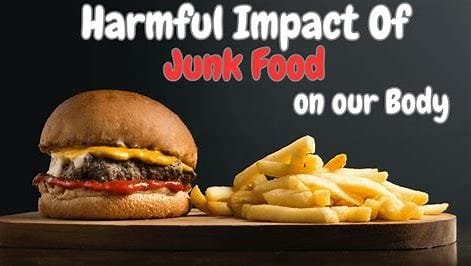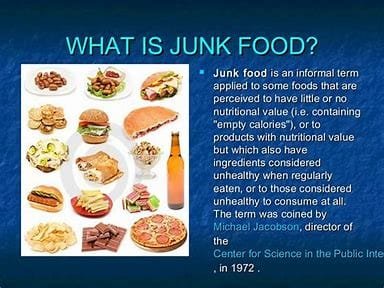
In this fast world, convenience and taste make junk food an unavoidable item for many people. Burgers and fries, candies, and drinks are all so easily accessible, cheap, and quick to satisfy hunger. However, these ultra-processed and high-calorie foods have a host of health disadvantages that, cumulatively, lead to serious health problems. The following are the main drawbacks of junk food to human health, which justify restriction of such foods in a healthy diet.
1. Nutritional Deficiencies
Many of the junk foods are filled with calories but short on the required nutrients. In most cases, they contain processed flour, sugar, unwanted fats, and high sodium levels that contribute to the taste but little to nothing in the nutritional content. The lacking or insufficient vitamins, minerals, and fiber in these foods may result in malnutrition. Nutrient deficiency affects energy, mental clarity, and the immune response, causing the body to become even more vulnerable to disease and an overall feeling of exhaustion.
Key Point: Junk foods are rich in calories but contain no nutrients necessary for the human body. They are lacking in nutrients, which impacts both the physical condition and the psychological state as well.
2. Obesity and Weight Gain
Typically, junk food carries unhealthy fats and sugars along with it. So, it will automatically increase weight from the time you start having it. Also, together with this very high-calorie food and the lack of fiber content in it, it is more likely that it may be overeating without even achieving the moment of satiation. In the long run, excess calorie intake leads to overweight. If not checked, it turns into obesity. Obesity is a great threat to health because it is a causative agent for many major diseases, such as diabetes, heart disease, and cancer.
Key Point: Junk food is taken daily, which leads to excess calorie intake and subsequently causes overweight and obesity.
3. Heart Disease
Most junk foods contain fats that are either trans fats or saturated fats, which may raise the quantities of “bad” LDL cholesterol in the bloodstream. High levels of LDL cholesterol cause plaque formation within the arteries, and this decreases blood flow through the arteries, leading to a danger of heart attack and stroke. Junk food is rich in sodium, and an increase in blood pressure is also seen because of this component. High blood pressure and high cholesterol are risk factors for cardiovascular diseases.
Key Point Junk foods contain more harmful fats and salt, so they are sure to produce an increase in blood pressure and cholesterol that heightens a person’s propensity to risk heart diseases.
4. Greater likelihood of developing Type 2 diabetes
Eating junk food leads to repeated instances of insulin resistance, a condition that more often serves as a precursor to the onset of type 2 diabetes. Generally, foods containing junk tend to be comprised of refined sugars and simple carbohydrates and thus easily raise an individual’s sugar levels within the bloodstream. The body becomes less efficient in the metabolism of sugar. As a result, it loses its sensitivity to insulin.
Consequently, it develops into Type 2 diabetes. The damage caused by elevated blood sugar levels to blood vessels may lead to other complications such as nerve damage, kidney disease, and vision problems.
Key Take-Away: Daily intake of sugary junk food may cause insulin resistance and may develop Type 2 diabetes.
5. Gastrointestinal Disorders

Junk foods have few fibers, which is the nutrient that enables one to have healthy digestion. Another role that is played by fiber is that of making one have regular bowel movements by preventing constipation. Most of the time, a diet lacking in fiber exhibits digestive problems in terms of constipation and bloating. Besides that, it is also the highly processed foods that might play their role in disturbing the health of the gut in some cases, depending on the nature of the bacterial change experienced in the digestive system.
This imbalance has been linked to many gastrointestinal problems, and there is now even concern that it plays a role in many other mental health disorders.
Key Take-Away Point: Low-fiber junk foods cause digestive problems and can also disrupt the balance of intestinal bacteria.
6. Enhanced Cancer Risk
Some preservatives, additives, and high-heat methods of cooking that are applied to junk food have been said to contribute to cancer risks. Processed meats include hot dogs, sausages, and deli meats that contain nitrates. These can convert to carcinogenic compounds inside the body. High intakes of sugary foods and refined carbohydrates lead to increased insulin levels and inflammation. Such a condition has been linked to a higher risk of some cancers, such as colorectal and pancreatic cancer.
Key Point: The preservatives and types of cooking used in the junk food increase the probability of cancer.
7. Negative Impact on Mental Status
Research has shown diets rich in junk food bring about negative effects on one’s mental status. People who consume more sugar and fat are more prone to depression, anxiety, and mood swings. Junk foods cause fluctuations in blood sugar levels that may affect the proper functioning of the brain, and this leads to poor concentration and reduced cognitive performance. Omega-3 fatty acids, which are found in many whole foods but lacking in junk foods, play a significant role in the brain, and their absence may worsen mental health issues.
Key Point: The impact that junk food has on the blood sugar level and lacking essential fats will have negative effects on mental health, leading to mood disorders and less concentration.
8. Addiction Potential
Most junk foods are made hyperpalatable, that is to say they activate the brain’s pleasure centers and make one crave them. It has been proven that junk food, high in sugar, salt, and fat, stimulates the brain’s reward pathways just like any addictive substance. Such stimulation leads to compulsive overeating and a loss of appetite for healthier, less processed foods. Long-term junk food dependency may become a vicious cycle from which it is difficult to break out because cravings usually return even after short periods of healthy eating.
The Main Idea: Junk foods are addicting. Therefore, cravings bring about a vicious circle where people keep on eating beyond what is recommended while rejecting healthier and tasty foodstuffs.
Conclusion:

Junk foods are amazingly easy. However, health results are quite severe. Unrestricted exposure to junk foods produces a range of diseases caused by health. Starting with obesity and heart-related ailments, Type 2 diabetes, gastrointestinal conditions, and mental diseases, just to mention a few. Knowing all these disadvantages, it is clear that limiting junk food and opting for nutrient-dense, whole foods is better for short-term and long-term health. Conscious food choices are what keep the body and mind healthy; therefore, a balanced diet is important in promoting our wellness.
We can maintain better physical health and emotional and mental well-being by curbing our dependence on fast food.



